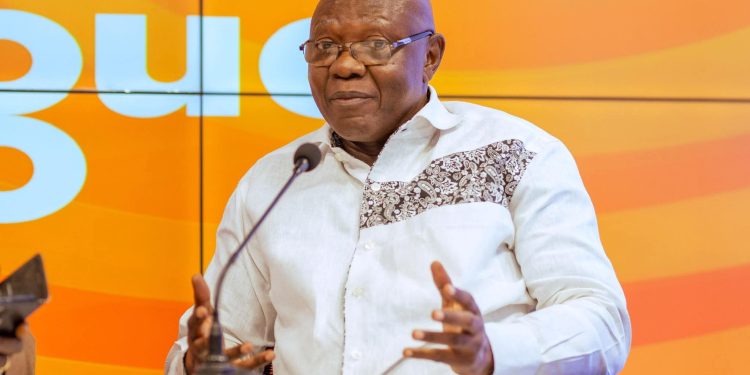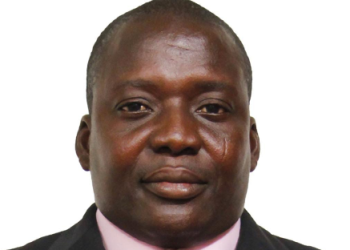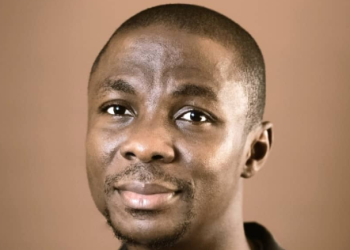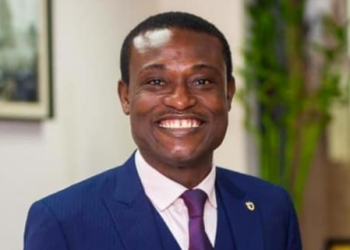Albert Einstein once observed that “three great forces rule the world: stupidity, fear, and greed.” Carl Jung warned that the death of critical thinking and the rise of collective stupidity could become existential threats to civilisation.
These are not just philosophical musings — they are prophetic warnings to intellectual foresight that capture the dangerous trajectory of nations that abandon reason, embrace herd mentality, and allow ignorance, fear, and insatiable greed to guide public life.
Today, Ghana stands dangerously close to that precipice.
Our democracy is being hollowed out not only by corrupt elites but also by the blind loyalty of citizens who rally behind their oppressors.
We are witnessing a toxic convergence of greed, stupidity, and fear that threatens to undo the very foundations of our society.
Greed: The cancer at the heart of governance
Revelations from investigative bodies, as well as accusations and counter-accusations from factions in the ongoing NPP flagbearership race, point to a deeply troubling reality: those who were entrusted with political power turned the nation into a private estate for personal enrichment.
They have looted with impunity, manipulated institutions, and diverted resources meant to improve education, health, infrastructure, and livelihoods into private accounts.
This greed extends beyond the treasury to the very land itself.
Illegal mining — often protected and facilitated by powerful and influential figures — has poisoned rivers, devastated farmlands, and rendered once-fertile lands barren. The Pra, Ankobra, and Offin rivers, once lifelines for entire communities, now flow with toxic waste. Forests have been stripped bare, water bodies destroyed, and ecosystems shattered, all in the reckless pursuit of wealth.
The result is an unfolding ecological disaster that threatens food security, public health, and the future of generations yet unborn.
Yet, in a tragic irony, many of the very people suffering from poisoned water, eroded land, unemployment, and deepening poverty still cheer and defend their leaders — leaders who have shown no commitment to prioritising their needs or well-being.
Collective stupidity: When the oppressed defend their oppressors
This paradox is what Carl Jung described as collective stupidity — a condition in which people surrender independent thought, adopt groupthink, and act against their own interests.
In Ghana, it manifests in the “we versus them” mentality that dominates our politics.
Ethnic identity, religious affiliation, and partisan loyalty routinely override reason, evidence, and the common good.
Communities neglected for decades still cheer and defend the leaders who do not prioritise their needs and well-being.
Citizens chant party slogans while living without clean water, quality schools, or functioning hospitals. Corruption scandals are dismissed if the thieves belong to “our party,” and blatant lies are believed if they come from “our leaders.”
This herd mentality is not patriotism — it is self-destruction disguised as loyalty.
It allows greed to flourish unchecked and makes fear an even more powerful weapon in the hands of those who seek to manipulate the masses.
Fear: The weapon of the powerful
Leaders manipulate public fears — fear of marginalisation, fear of ethnic domination, fear of losing elections — to consolidate their power. Instead of honest debates about policy and governance, they manufacture enemies and feed paranoia.
They warn their supporters of catastrophic consequences if “the other side” wins, turning elections into existential battles rather than democratic contests.
This politics of fear deepens division, silences dissent, and diverts public attention from the real culprits of our national malaise.
It is why Ghana remains trapped in a cycle of underdevelopment: people are too fearful to demand accountability, too blinded by partisanship to see the truth, and too consumed by collective stupidity to break free from the chains that bind them.
Acrimonious politics and the illusion of leadership
The NPP’s ongoing leadership race is a vivid demonstration of how far our political culture has deteriorated.
What should have been a contest of ideas about Ghana’s future has degenerated into insults, tribal appeals, and personal vendettas.
Factions have turned the contest into a blood sport, tearing into each other with accusations and slander while offering little vision for governance.
The NDC must take heed. It is not immune to the same poison.
If it fails to learn from the NPP’s internal chaos and allows its own leadership contest to descend into acrimony, ego clashes, and factionalism, it will squander the opportunity to offer Ghanaians a credible alternative.
Leadership selection must not be about who controls the biggest faction — it must be about vision, competence, and the moral courage to lead diversity and inclusion.
The cost of stupidity: A nation in decline
The cost of allowing stupidity, greed, and fear to rule is already visible. Rivers that once sustained life now carry death. Forests that fed generations have been turned into wastelands. Billions of cedis have vanished from the public purse while millions remain trapped in poverty. Institutions meant to protect the people have been captured to serve the powerful.
Public discourse has been reduced to tribal insults, empty slogans, and partisan hysteria.
Worse still, a generation is growing up believing that corruption is normal, that politics is about power, privilege, and personal enrichment, and that loyalty to tribe or party is more important than loyalty to truth or social justice.
This is how nations collapse — not with a sudden explosion, but with a slow, steady rot from within.
A call to national awakening
If Ghana is to survive and thrive, it must confront these destructive forces head-on.
Citizens must reclaim their capacity for critical thinking.
They must question narratives, reject manipulation, and hold leaders accountable regardless of party colours. Political affiliation must never be an excuse for defending theft, incompetence, or abuse.
Our political culture must evolve from personality cults to policy debates, from tribal mobilisation to national purpose. Leadership contests must become competitions of ideas, not insults.
And governance must be treated as a sacred trust, not a personal enterprise.
A citizenry that cannot think critically is doomed to be ruled by self-seekers and nation-wreckers.
A people that cannot question will forever cheer their own impoverishment.
Choose wisdom over stupidity
Einstein’s warning and Jung’s insight are not relics of the past — they are urgent messages for Ghana today.
Stupidity, fear, and greed are tearing at the fabric of our nation.
If we do not resist them, they will destroy us.
The death of critical thinking is not just an intellectual problem — it is an existential threat.
It is what keeps corrupt leaders in power, what allows our environment to be destroyed, and what ensures that poverty persists amid plenty.
Ghana’s reset begins with the mind.
It begins when citizens refuse to be pawns, when they think beyond “we and them,” and when they demand integrity, competence, and courage from those who seek to lead.
Until then, we will remain trapped in a tragic cycle — a nation impoverished not by its leaders’ greed but by the retreat of patriotic intellectuals, giving rise to collective stupidity.
By AKWASI OPPONG FOSU













